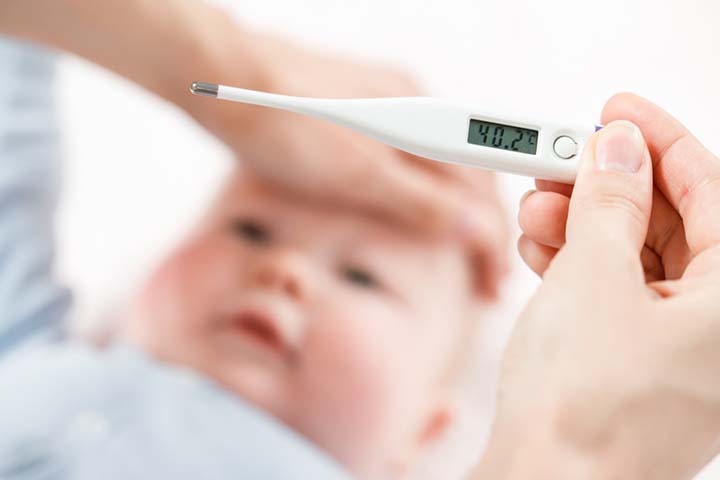Fever After Vaccines: What Every Parent Should Know
Hey there, super parents! ? Are you concerned about your little one’s fever after their vaccination? It’s totally natural to feel a bit anxious when your child isn’t feeling 100%. But fear not! I’m here to walk you through the ins and outs of post-vaccination fever, providing you with peace of mind and practical know-how for this common occurrence. Roll up your sleeves, and let’s dive into this guide, designed to demystify the post-vaccine fever and equip you with tips and tricks for handling it!
Understanding the Cause: Why Do Fevers Happen After Vaccinations?
First things first, let’s understand the why. Fevers, though scary sounding, are actually a sign that your child’s immune system is working exactly as it should! When a vaccine is introduced into the body, it sparks an immune response as the body “practices” fighting off the germ. This can raise body temperature, leading to a fever. It’s a completely normal and healthy reaction, and it’s a sign that your kiddo’s body is busy building up protection against disease.
What’s Normal and What’s Not?
- Typical Fever Ranges: Post-vaccine fevers usually hover around 98.6°F to 100.4°F (37°C to 38°C). If your child’s temperature goes a smidge above this, don’t panic just yet!
- Duration: These fevers are often short-lived, typically lasting 24 to 48 hours. If it persists beyond this, or if it’s making your young one particularly uncomfortable, then it’s time to reach out to your pediatrician.
- Red Flags: In very rare cases, a high fever after a vaccination could point to something more serious. If your child’s fever surpasses 104°F (40°C) or if there are other symptoms like persistent crying, extreme sleepiness, or seizures, you should seek medical attention immediately.
Managing Post-Vaccination Fever at Home
Now, let’s talk about keeping your little one comfortable. It’s not always easy to see them feeling under the weather, but there are some simple, effective steps you can take to help manage their fever at home.
TLC (Tender Loving Care)
Start with the basics: make sure your child gets plenty of rest and is staying hydrated. Water, juices, and electrolyte solutions are all excellent choices to keep fluids up. Your child may not have their usual appetite, and that’s okay. Offer easy-to-digest foods when they feel up to it. And of course, cuddles are always a great medicine for both of you!
Medication Tips
If your pediatrician gives the go-ahead, over-the-counter fever reducers like acetaminophen or ibuprofen can be used. Remember, it’s crucial to stick to the recommended dose based on your child’s weight and age, and always consult with your healthcare provider before administering any medication.
And there you have it! By understanding and managing a post-vaccination fever, you can ensure your child bounces back in no time. Remember, these reactions are typical and are a testament to the amazing work their bodies are doing. Stay tuned for more insights and tips in this comprehensive guide to keep your child feeling their best post-vaccination!
Keep this joyful energy, and remember to bookmark this guide because there’s more to come! With the right knowledge, you’ll navigate post-vaccine care like a pro! Stay happy, healthy, and informed, dear parents! Keep reading for even more details and guidance on what to do when your child has a fever after vaccines.

Five Essential Tips for Preparing for Post-Vaccine Fever
Knowing how to prepare for a potential fever after vaccination can help you spring into action with confidence and ease. Here are five key things every parent should know as they ready themselves for this possibility:
1. Dress for Comfort
- Comfortable Clothing: Opt for loose-fitting, lightweight clothing for your child. This helps regulate their body temperature without adding extra warmth from tight or heavy fabrics.
- Layering: Consider layers that can be easily added or removed. As fevers can sometimes cause chills and sweating, being able to adjust your child’s attire is crucial.
2. Set Up a Soothing Environment
- Rest Area: Prepare a comfortable place for your child to rest that’s quiet and peaceful. This could be their bed with extra pillows or a cozy spot on the couch with their favorite blanket.
- Dim Lighting: Soften the lighting in the rest area. Natural light is best, but if that’s not possible, a dim lamp will create a calming atmosphere.
- Distractions: Have some mild distractions at hand—think favorite books, quiet games, or a tablet prepped with educational shows—to help your child take their mind off any discomfort.
3. Keep Hydration Supplies Ready
- Fluid Options: Stock up on various fluids like water, pediatric electrolyte solutions, and juices that are low in sugar.
- Easy Access: Make sure these fluids are easily accessible and encourage your child to sip on them throughout the day, even if they’re not feeling thirsty.
4. Have Fever Reducers On Hand
- Medication Stock: Check your medicine cabinet to ensure you have child-appropriate doses of acetaminophen or ibuprofen before the vaccination day.
- Consultation Reminder: Chat with your pediatrician in advance about their recommendations for fever management post-vaccination.
5. Monitor and Record
- Thermometer Check: Ensure your thermometer is working correctly, and you’re comfortable using it. A practice run before the actual need arises can be very helpful.
- Keep Records: Maintain a log of your child’s temperature readings and any symptoms. This can be invaluable information for your pediatrician if you need to consult them.
By being prepared, you can turn a potentially stressful situation into one that’s handled with calm and proficiency. A bit of foresight goes a long way in ensuring the health and comfort of your child following their immunization. Keep this guide at the ready, and remember—when your little one is in need of some extra care, you’ve got the knowledge and the heart to see them through. ??
With love and a cheerful attitude, let’s ensure our children get the best protection possible, and handle the little bumps along the way with grace and ease. After all, every vaccination is a step towards a healthier future for them, and getting through post-vaccine fevers is just another part of our incredible parenting journey!
Stay prepared, stay informed, and most importantly, keep sharing the love and cuddles—after all, they’re the secret ingredient in any kiddo’s recovery recipe!
Remember to follow all the latest guidelines from health officials and your pediatrician, and keep this guide handy for any future vaccinations. Cheers to happy, healthy little ones, and the amazing parents who care for them! ??
Stay tuned for further updates on how to navigate your child’s health and well-being with confidence!
See more great Things to Do with Kids in New Zealand here. For more information see here
Disclaimer
The articles available via our website provide general information only and we strongly urge readers to exercise caution and conduct their own thorough research and fact-checking. The information presented should not be taken as absolute truth, and, to the maximum extent permitted by law, we will not be held liable for any inaccuracies or errors in the content. It is essential for individuals to independently verify and validate the information before making any decisions or taking any actions based on the articles.




